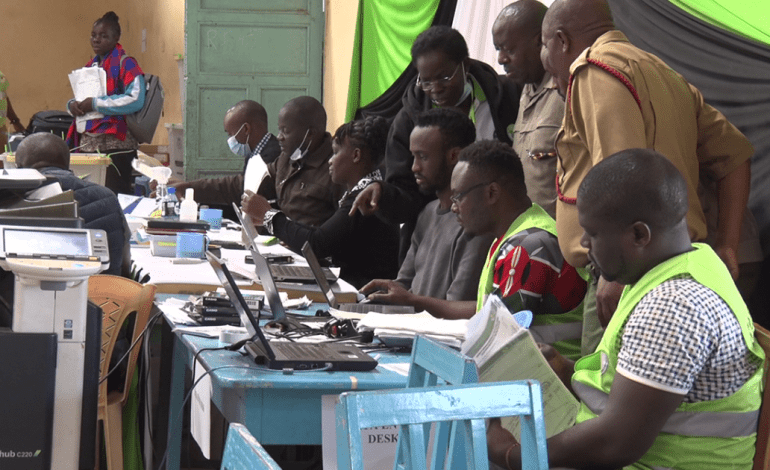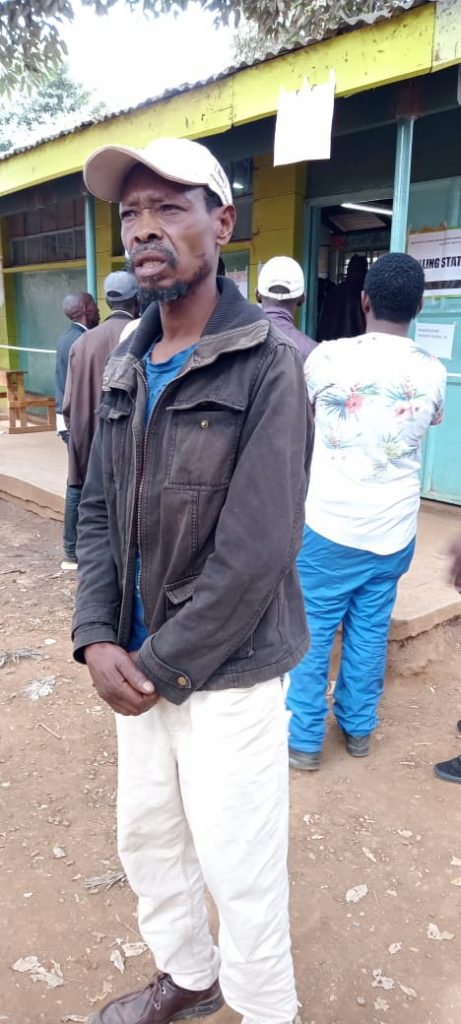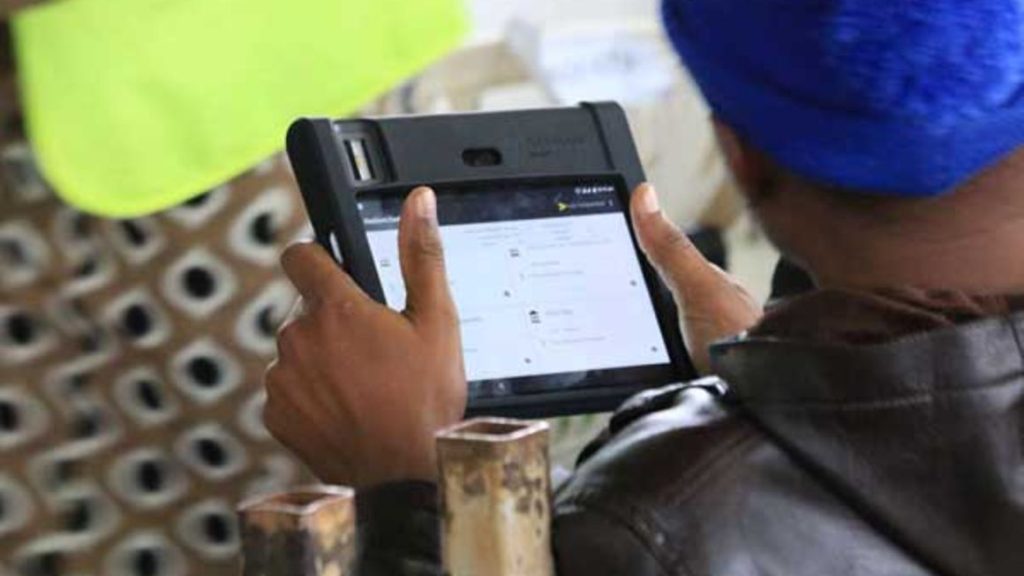Passaris bemoans challenges witnessed during elections

Nairobi county woman representative Hon. Esther Passaris has bemoaned various challenges witnessed during Tuesday’s voting exercise and expressed dissatisfaction with the failure to use manual registers on election day. She was addressing the media at the Dagoretti North constituency tallying centre. Hon. Passaris said most voters who turned out for the exercise did not cast their votes due to the challenges with the Kenya Integrated Election Management (KIEMS) kit. She stated that despite this challenge, which also led to some polling stations starting voting exercises late, polling stations were closed at 5 pm without compensating for time lost.
“If a polling station is delayed by three hours and you don’t add the number of hours lost on that particular stream, then you are not giving an ample chance,” she said.

Timing was not the only problem experienced as most voters, especially the elderly ones, had challenges beng identified by the KIEMS kit. For example, the voting exercise stopped for about 35 minutes in Kawangware primary school polling center, stream six, after the KIEMS kit raised the alarm after failing to identify a 50-year-old man who identified himself only as Kiribati.

“I entered the polling station, and my first finger failed to identify me. The officer then told me to sit down. A few minutes later, she called me for the second time. My finger failed to recognize me again, then I was requested to give my other finger, which showed that I had voted, “said an aggrieved Kiribati on Tuesday at Kawangware primary school polling center.
The Kawangware resident revealed that he had arrived at the polling centre around mid-morning spent almost five hours queuing to exercise his democratic right. He expressed his frustration at being denied a chance to vote despite the fact that he did not have indelible ink on his finger to show he had voted as the kit claimed.
“That thing has pained me because I have not voted. I am honest that I have not voted. I am not a child. I have not liked how I have been handled, and I don’t know how it happened that I’m told I have voted, yet I have not, “he complained.
IEBC commissioner Justus Nyang’aya confirmed that out of 46,229 KIEMS kits, the commission received and addressed cases of about 200 that had failures.
“Technology is prone to breakdowns, and when they do, we have an alternative way to address that which we have already done,” he stated.

Apart from the KIEMS kit challenges, some voters could not identify their polling stations upon arrival at their respective voting centers. The confusion was experienced by voters who could not access the digital IEBC verification portal online or those who did not know they could do so by sending short messages with their identification numbers and date of birth. Hon. Passaris said even the lists of voters that IEBC pinned on the walls at various polling centers did not help.
“IEBC tried to educate us and gave us verifying links. The problem is that people did not follow that, “she noted.
Hon. Passaris also urged the IEBC to adopt digital voting and counting in the future noting that the current manual counting process was proving tedious and was a threat to the environment.
“I wish we could go digital completely because all these long ballot papers are trees that have been cut down to prepare them. The six papers are confusing voters because some are very long. We must stop using plastic to make ballot boxes,” said Passaris. She also noted that the process was tasking for those IEBC staff, observes, journalists and the various party agents who sent days camping in the various tallying centres.
“In the future, should we continue with the manual counting of results, then we will be forced to reduce the number of voters per polling center to about 300 because this is a very long time, and these people are not able to go sleep, eat, and shower,” she said.
Despite the challenges experienced and the long wait, Hon. Passaris has urged Kenyans to be patient with the counting of votes. This comes in the wake of confusion among Kenyans as different media houses display different results. Hon. Passaris said the results media houses display are a percentage of the cast votes adding that according to a 2017 court order IEBC would have to verify digital and manual results before officially announcing the final results.
Last evening, the Media Council of Kenya (MCK) sent out a press statement to remind Kenyans that the IEBC will declare the final results of the elections.
“The Media Council of Kenya has noted growing concerns over media houses’ different election results. The council confirms that the results being projected are all from the IEBC. However, the sequencing by different media houses is from different voting areas, “reads a press statement dated August 10th, 2022, signed by the CEO and secretary of the MCK, David Omwoyo.







